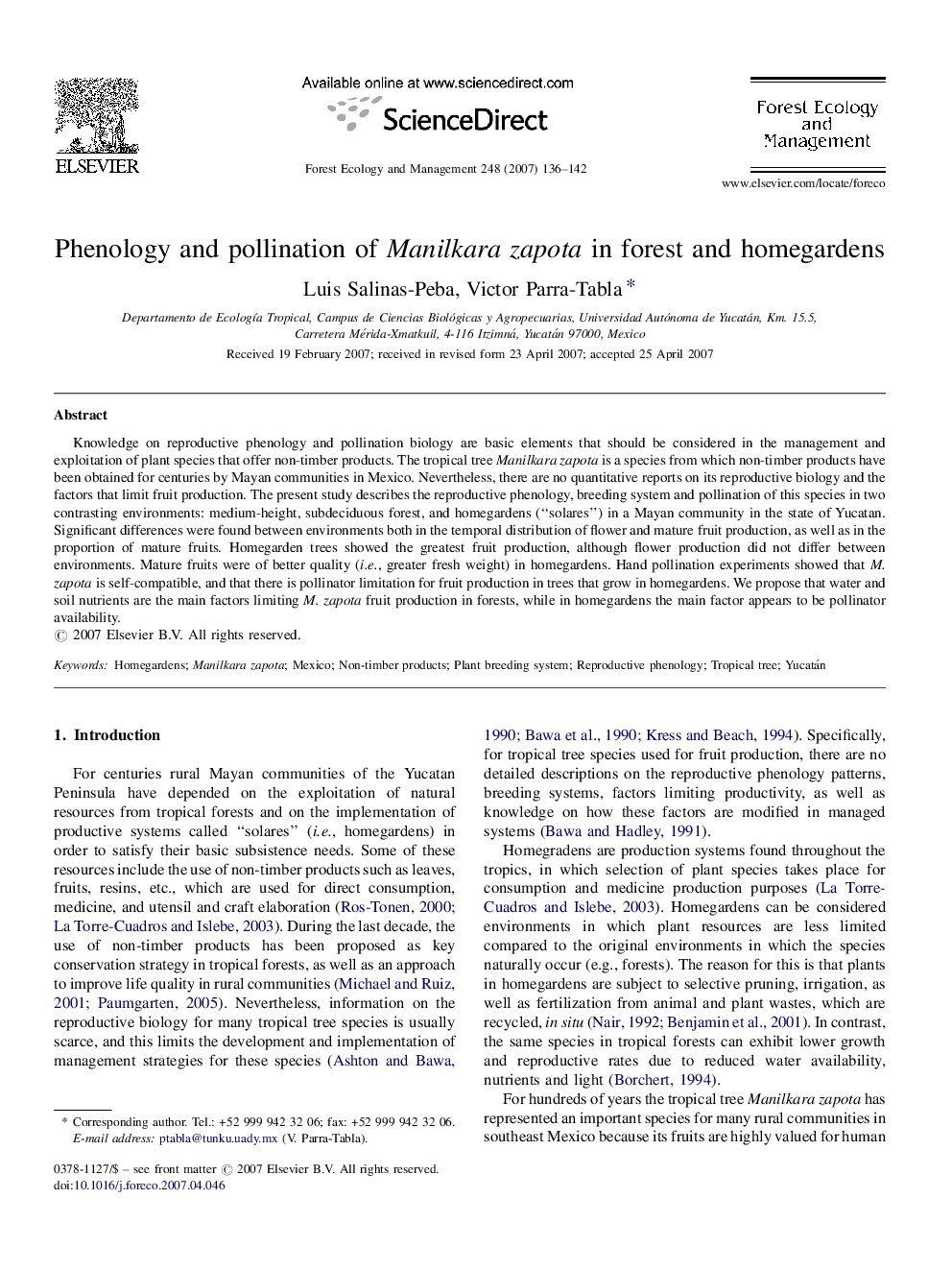| Article ID | Journal | Published Year | Pages | File Type |
|---|---|---|---|---|
| 90447 | Forest Ecology and Management | 2007 | 7 Pages |
Knowledge on reproductive phenology and pollination biology are basic elements that should be considered in the management and exploitation of plant species that offer non-timber products. The tropical tree Manilkara zapota is a species from which non-timber products have been obtained for centuries by Mayan communities in Mexico. Nevertheless, there are no quantitative reports on its reproductive biology and the factors that limit fruit production. The present study describes the reproductive phenology, breeding system and pollination of this species in two contrasting environments: medium-height, subdeciduous forest, and homegardens (“solares”) in a Mayan community in the state of Yucatan. Significant differences were found between environments both in the temporal distribution of flower and mature fruit production, as well as in the proportion of mature fruits. Homegarden trees showed the greatest fruit production, although flower production did not differ between environments. Mature fruits were of better quality (i.e., greater fresh weight) in homegardens. Hand pollination experiments showed that M. zapota is self-compatible, and that there is pollinator limitation for fruit production in trees that grow in homegardens. We propose that water and soil nutrients are the main factors limiting M. zapota fruit production in forests, while in homegardens the main factor appears to be pollinator availability.
